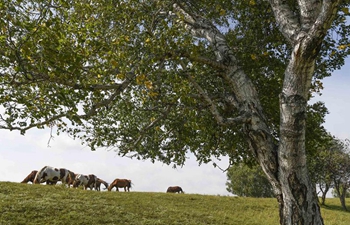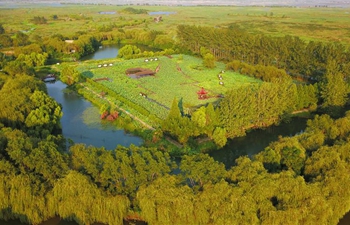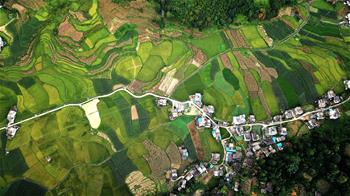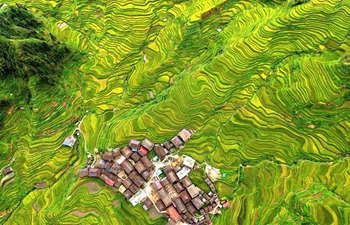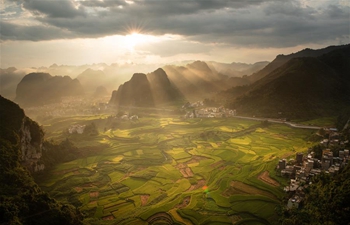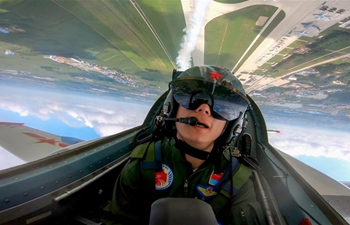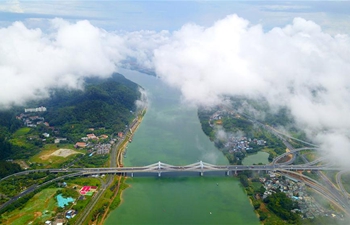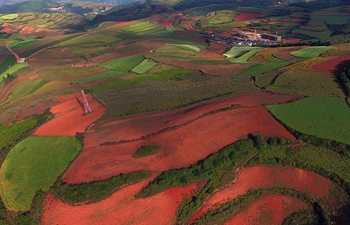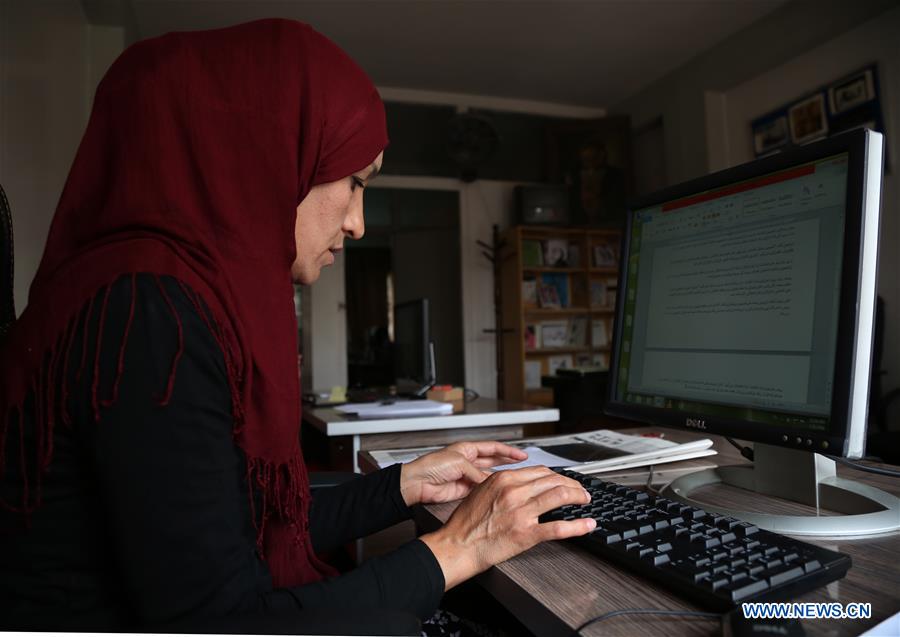
Suraya Raiszadah, an Afghan female journalist of The Kabul Times, a daily government-run newspaper works at her office in Kabul, capital of Afghanistan, Sept. 3, 2018. Despite mounting challenges, Afghan women journalists still persist in going to work every day, said several female reporters during an interview with Xinhua recently. (Xinhua/Rahmat Alizadah)
KABUL, Sept. 2 (Xinhua) -- Despite mounting challenges, Afghan women journalists still persist in going to work every day, said several female reporters during an interview with Xinhua recently.
After the fall of Taliban, Afghanistan now has more than one hundred radio stations, nearly 80 TV networks and hundreds of publications. However, Afghan women, in the still insecure country, have little to celebrate as their representation in media is still not been followed suit.
During the Xinhua interview, some female reporters for the only state-run English newspaper "The Kabul Times" blamed the numerous types of threats, including vicious social traditions, to challenge their work and life.
Massouda Qarizada, a female journalist with 10 years of work experience in different media including The Kabul Times, said cultural barriers, discriminatory contracts, hazardous working environment, unsound rivalries among co-workers and the like, are still threatening female journalists in Afghanistan. But she is committed to never bowing to any threats deterring her from her work in media.
"I have full support of my family and am not working for making money, as I have no economic problem. I work to realize my value of education, and I want to work to serve my people," she said.
For some girls and women, like Shukria Kohistan, another female reporter at the newspaper for more than 10 years, journalism serves as a desire and a tool to help promote women's rights, as she had done much for women, particularly interviewing some Afghan widows and raising their voices and grievance.
Enjoying complete support of her family for her work in media, Kohistan said various threats and intimidations against women journalists still exist in the Afghan society.
"When going out to cover an event, people would say why a woman should be a journalist, why they don't stay at home."
Having experienced death threats and serious intimidations from unknown armed men for many times, Karima Malikzada, the daily's photo reporter has no other way but to carry on as her parents were killed in civil conflicts and she is the only bread earner for her long ailing sister.
Hamidullah Arefi, chief editor of "The Kabul Times", said all his female reporters are very much committed to their work, "despite facing social obstacles while reporting from the area."
They also receive training from the newspaper, so that they can improve their abilities and report news of the country in a responsible and neutral manner, Arefi said.


